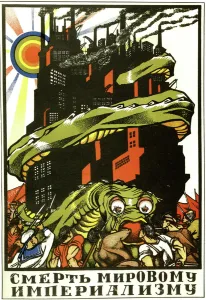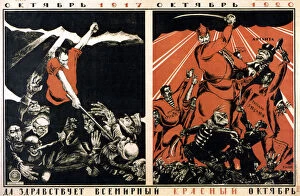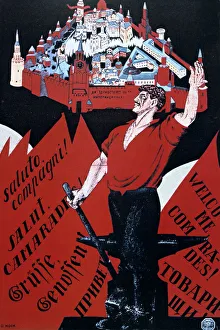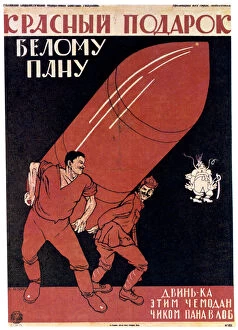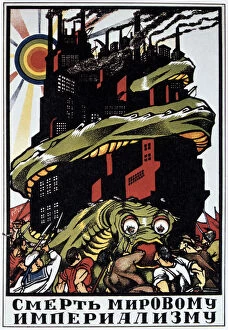Dmitrij Stahievic Collection
Dmitriy Stakhievich Moor: Capturing the Spirit of Revolution With a brush in hand and a fiery passion in his heart
All Professionally Made to Order for Quick Shipping
Dmitriy Stakhievich Moor: Capturing the Spirit of Revolution With a brush in hand and a fiery passion in his heart, Dmitriy Stakhievich Moor left an indelible mark on the world of art and politics. Born in October 1917, during the tumultuous times of the Russian Revolution, Moor's artistic journey mirrored the revolutionary fervor that swept across his homeland. His posters became powerful weapons against world imperialism, boldly proclaiming "Death to World Imperialism" in 1919. Through striking imagery and bold slogans, Moor's art captured the spirit of defiance that fueled the revolutionaries' fight for justice. In 1920, he celebrated another milestone with "Long Live the Worldwide Red October. " poster. This iconic artwork immortalized one of history's most significant events - The Bolshevik Revolution. It symbolized hope for a brighter future where equality reigned supreme. Moor's talent extended beyond political propaganda; he also delved into themes like socialism and youth empowerment. In 1929, his masterpiece "The Socialist Emulation" showcased workers united by their common goal – building a better society through collective effort. Similarly, his poster from the same year titled "Have You Volunteered?" urged individuals to contribute their skills towards societal progress. It was a call to action that resonated with many as they embraced their roles as agents of change. Moor recognized that young people held immense power to shape tomorrow's world. His vibrant artwork titled "Long Live Youth International" paid homage to this belief while inspiring generations to come together for a common cause - creating a more just society. Not afraid to confront uncomfortable truths head-on, Moor created thought-provoking pieces such as "A Red Gift to a White Master. " This biting critique exposed deep-rooted inequalities within society while urging viewers to question existing power structures. "For the Death of World Imperialism, " created in 1920, was another powerful statement against oppression.

